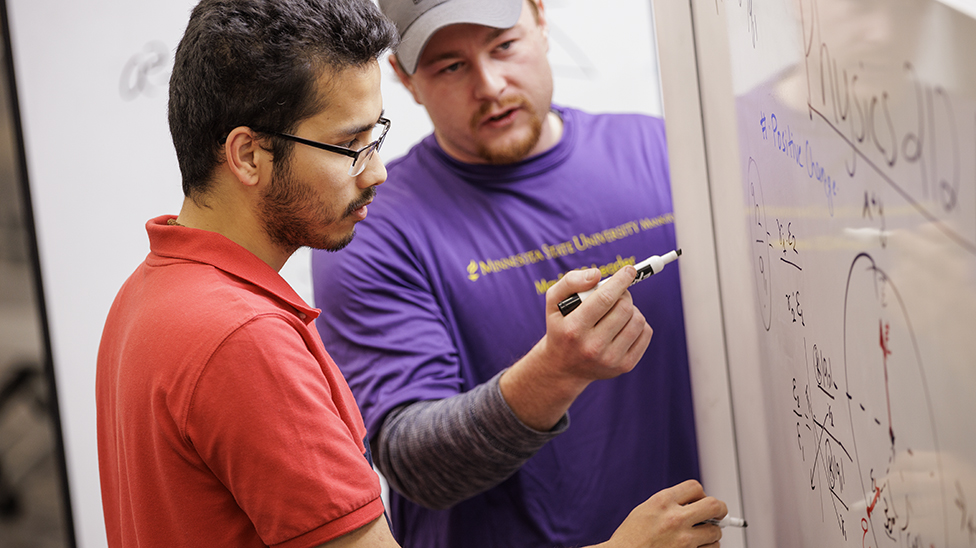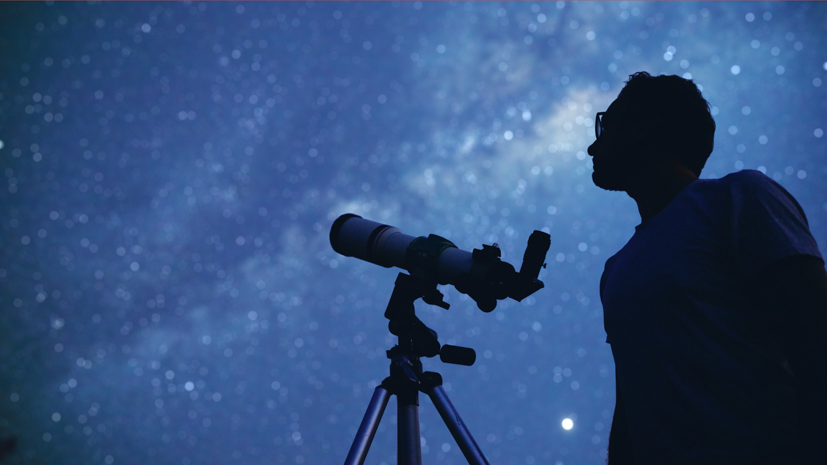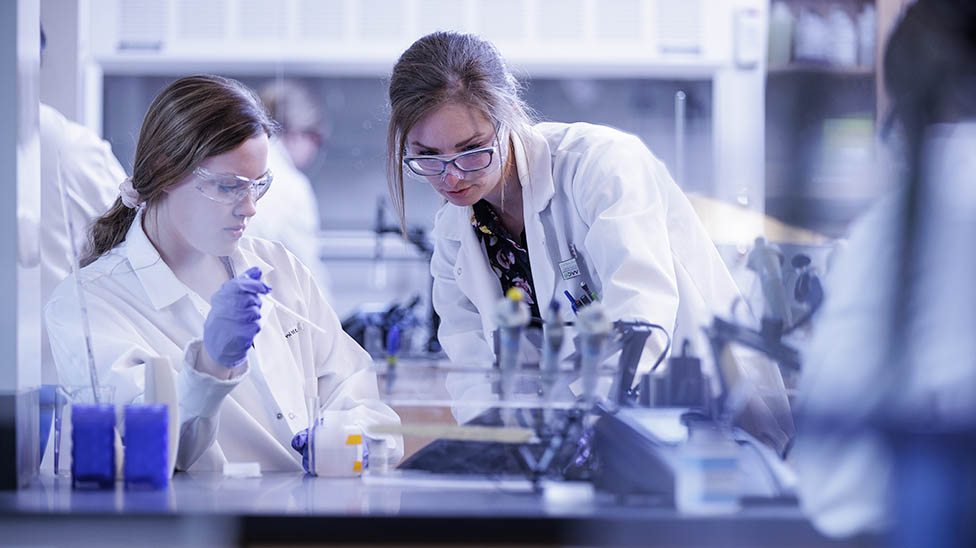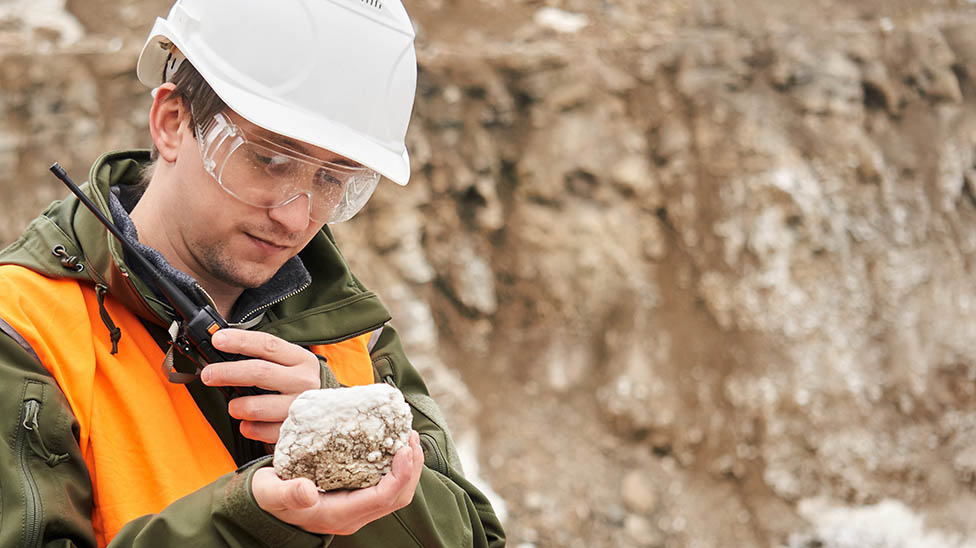
Physics
Join a vast field that examines the very foundation of the universe and the laws of nature. As a student in our program you will be part of something greater and will find stimulating research opportunities that will contribute to the advancement of areas such as medicine, energy and even space exploration.
Careers in Physics
Obtaining a major in Physics prepares students for a variety of career opportunities.- Accelerator Operator
- Applications Engineer
- Laser Engineer
- Technical Specialist
- Physicist
Potential Salary
Median Salary $149,530
Physics Degrees at MSU
Physics, Bachelor of Science
The Physics Bachelor of Science guides students through the fundamental principles of the universe and explores mechanics, electromagnetism, thermodynamics, and quantum mechanics.
Physics Teaching, Bachelor of Science
The Bachelor of Science in Physics Teaching provides a strong foundational knowledge of physics laws and principles, while pairing with an educational curriculum to prepare students for working in a school setting. This program satisfies licensure-to-practice standards for Minnesota and may satisfy standards for other states or US territories. The Physics Teaching Bachelor of Science prepares students to teach physics in middle and high school settings.
Physics, Master of Science
The Master of Science in Physics furthers a student's study and research in the areas of mathematical methods, classical mechanics, quantum mechanics and electromagnetism.
Physics, Minor
The Physics minor is designed to compliment a variety of different disciplines within the College of Science, Engineering and Technology.
Astronomy, Minor
The astronomy minor serves the needs of a wide range of students, from those with only a casual interest in the subject to those students planning careers in the field.
Physics, Bachelor of Science
The Physics Bachelor of Science guides students through the fundamental principles of the universe and explores mechanics, electromagnetism, thermodynamics, and quantum mechanics.
Physics Teaching, Bachelor of Science
The Bachelor of Science in Physics Teaching provides a strong foundational knowledge of physics laws and principles, while pairing with an educational curriculum to prepare students for working in a school setting. This program satisfies licensure-to-practice standards for Minnesota and may satisfy standards for other states or US territories. The Physics Teaching Bachelor of Science prepares students to teach physics in middle and high school settings.
Physics, Master of Science
The Master of Science in Physics furthers a student's study and research in the areas of mathematical methods, classical mechanics, quantum mechanics and electromagnetism.
Physics, Minor
The Physics minor is designed to compliment a variety of different disciplines within the College of Science, Engineering and Technology.
Astronomy, Minor
The astronomy minor serves the needs of a wide range of students, from those with only a casual interest in the subject to those students planning careers in the field.

Observatories
Did you know MSU hosts two different Campus Observatory Facilities? Our teaching telescopes are located at the Leo V. Standeford Observatory and our research facility is the Andreas Observatory.
Learn More
Physics and Astronomy Club
The MSU Mankato Physics and Astronomy Club is an academic group that provides a venue for physics majors and minors and astronomy minors to meet each other, interact, have fun, learn more about physics and astronomy, provide opportunities for their future careers and more.
Undergraduate Research
Students in our physics program find many opportunities to showcase their research at various conferences and symposiums. Through dedicated faculty guidance and established industry partnerships, these opportunities help our students gain experiences that help to shape areas that they are most passionate about.
Related Programs

Biology
A critical understanding and awareness of cellular and molecular physiology is necessary for future leaders pursuing careers in healthcare, translational or essential scientific discovery.

Chemistry
Chemistry is the study of matter and the properties of their makeup. Our program exposes students to a variety of relevant topics in chemistry, such as inorganic, organic, physical, theoretical, materials, environmental, and industrial branches.

Geology
Geology is the study of the Earth, its materials, and its processes. It concerns itself with solving basic scientific problems and utilizing knowledge of the Earth for the benefit of society.
Department of Physics
College of
Science, Engineering and Technology
Become part of the next generation of leaders, innovators, and researchers as a student at Minnesota State Mankato’s College of Science, Engineering and Technology. Whether you're fascinated by the natural world, modern engineering, or advancements in technology, you belong here.
Learn More About the College of Science, Engineering and Technology
